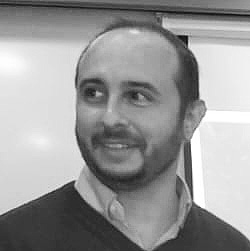Lab

Lab 1 – Foundational Graph Databases Theory
Antonio Origlia
Università di Napoli
Mail: antonio.origlia@unina.it
Abstract: The Neo4j Graph Database is rapidly becoming one of the leading solution for graph data analysis both in the industrial and in the academic field. Scalability, performance and ease of use are the founding points of its success as a data storage and enrichment tool. The integration with the Graph Data Science library, in particular, provides a streamlined way to connect graph representations with machine learning algorithms designed to extract latent knowledge. In this tutorial, we will cover the main aspects of knowledge graph design, its general management, performance optimisation aspects and connection with Natural Language Processing tools (in Python).
Short Bio: I took my PhD in 2013 with a thesis on Affective Computing, focusing on emotional speech analysis with robotics applications. Then, I concentrated on Human-Computer Interaction topics, mainly focusing on applications for Cultural Heritage also involving the use of speech. My work mainly concentrates on probabilistic dialogue systems and their use in advanced applications developed using game engines (Unreal Engine 4) and graph based knowledge representation. At present, I am Assistant Professor at the University of Naples Federico II.

Lab 2 – Graph Embeddings
Marco Bessi
Politecnico di Milano / Neo4J
Abstract: This lab will start with the theoretical foundation of node embeddings after which a practical implementation will follow using the embedding models from the Neo4j Graph Data Science library. Once embeddings are generated further downstream tasks such as classification will be explored.
Short bio: Phd Computer Sciences by Politecnico di Milano. Marco is responsible for pre-sales activities for the Italian market. He loves switching on light bulbs with people, facilitating those ‘aha moments’ that change mindsets and open up new possibilities. Marco helps to identify customer requirements, designs a product/service to meet those requirements, evangelizes the proposed solution, and finally adjusts the solution as necessary to become relevant, effective, right-fit, and complete for the customer needs. He is passionately responsible for the collaboration with major Italian universities focusing on new research topics on graph databases and related use cases.

Lab 3 – Terminologies and Linguistic Linked Open Data (LLOD)
Elena Montiel-Ponsoda
Universidad Politécnica de Madrid – UPM
Mail: emontiel@fi.upm.es
Abstract: Terminologies are a specific type of language resources that compile the terms or specialised words of a specific area of knowledge. NLP applications dealing with domain corpora usually need to rely on terminological resources that account for the specific meanings of the words in the domain at hand. In the first part of the Lab, students will become familiar with the type of linguistic information usually contained in terminologies and the models proposed within the Linguistic Linked Data community to represent terminological data in Semantic Web formats. Once published in these formats, language resources can be linked to other assets and become part of the Linguistic Linked Open Data cloud (LLOD cloud). During the second part of the lab, students will learn about the whole life cycle of terminologies in Semantic Web formats. This session will be fully practical, and students are expected to use a number of applications with varied objectives: extraction of terms from text, enrichment with existing information and publishing following the Linked Data principles.
Short Bio: Elena Montiel-Ponsoda is an Associate Professor of Applied Linguistics at Universidad Politécnica de Madrid (UPM), in Madrid, Spain, and member of the Ontology Engineering Group at the same University. Her main research interests are in the common ground between Terminology and Ontology Engineering. Her main research has focused on the development of models to enrich ontologies with multilingual information and to expose terminologies and other language resources as linked data. She is currently exploring the use of interlinked multilingual terminologies in semantic-based information retrieval. Recently, she has coordinated the Lynx project, and innovation action funded by the European Union’s Horizon 2020 research and innovation programme under grant agreement No 780602. This project has created an ecosystem of smart cloud services based on a Legal Knowledge Graph, which integrates and links heterogeneous data sources across languages and jurisdictions.
